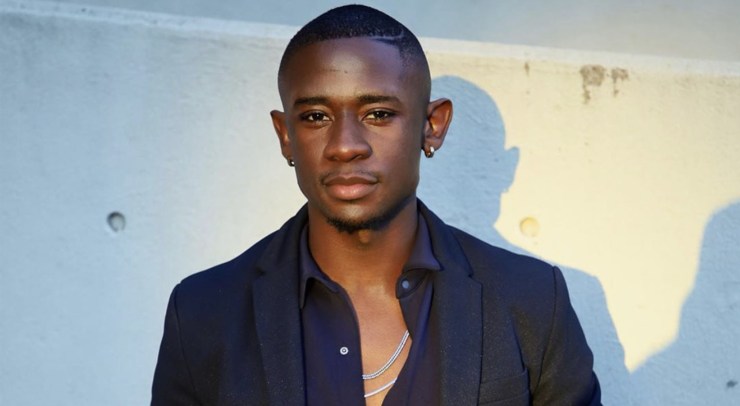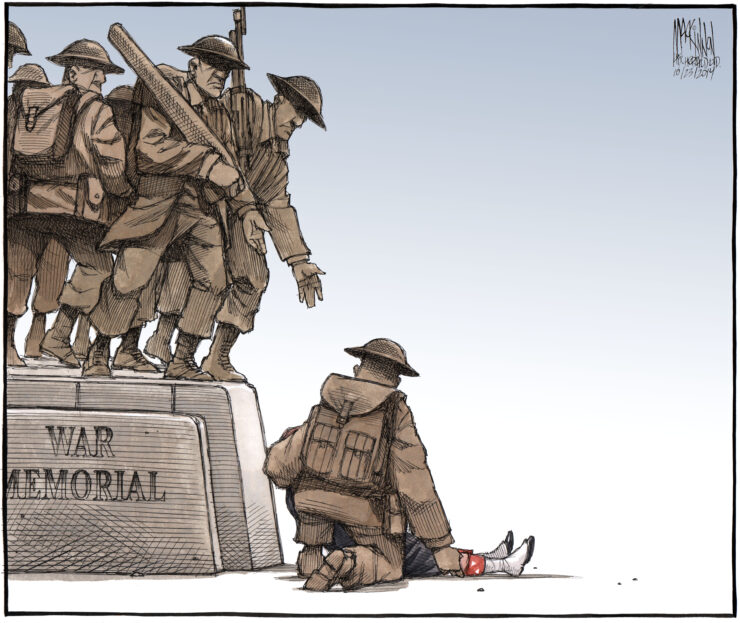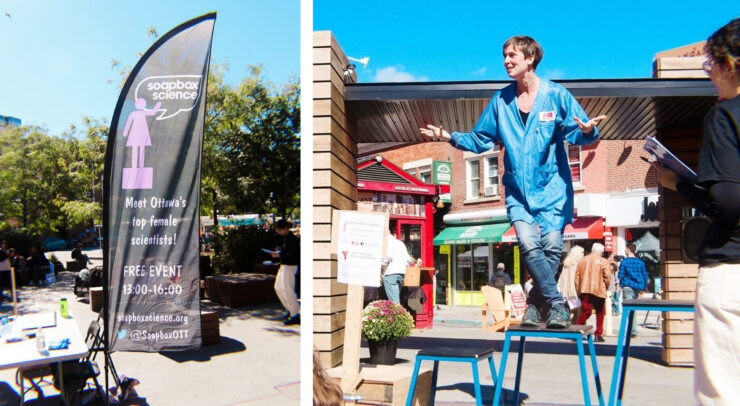Seguya is the only candidate for the equity commissioner position
This interview is part of our series of articles profiling the candidates in the upcoming University of Ottawa Students’ Union (UOSU) by-elections that will be held from Nov. 9-11. Answers have been edited for length and clarity.
Since Jason Seguya is the only candidate running for the equity commissioner position on the UOSU’s executive, students will be asked to accept or decline his candidacy.
Fulcrum (F): Can you give us a short description of yourself?
Seguya (S): I was the UOSU’s student life commissioner for the 2019-2020 academic year. I’m an organizer and community builder involved with the City of Ottawa in a variety of different initiatives related to social justice and the liberation of Black folk as a whole.
F: Why are you running to be equity commissioner?
S: So as we’re currently speaking, the climate at the University of Ottawa is progressively getting worse for marginalized groups.
Whether it is the multiple carding incidents that we saw last year, the fact that hate crimes are taking place on our campus, the use of racial slurs within our classroom. It is clear that there’s a constant reminder that as a university, these spaces aren’t necessarily made for us.
One of the major things that I draw a lot of emphasis on, is how deeply embedded racism is in universities. Our participation as Black folk in these discussions isn’t one that’s built out of passion. It’s not that we’re necessarily passionate for social justice, but it’s rather built out of the necessity that by not doing the work or not speaking on these issues, we are compromising our own safety and security.
That kind of ties together why I’m running for this specific position, out of the necessity of the safety of myself and other Black folk on this campus with the goal of also empathizing with the voices of so many members of my community that aren’t necessarily being heard or rather are silenced during this conversation.
F: In your own words, what are the roles and responsibilities of being the equity commissioner for the UOSU?
S: In principle, through its constitution and equity code, the mandate of the UOSU includes upholding the principle of equity. The UOSU is set out to recognize the various barriers that affect marginalized students and members of the community, uniquely, not only on campus but even within the organization.
The role of equity commissioner is set out to uphold this responsibility, enforce the organization’s equity code while bringing representation to marginalized communities as well. This work is done in collaboration with the Equity Committee, the Equity Round table as well as various on campus groups.
F: What projects or goals do you hope to accomplish if elected to the UOSU’s executive committee?
S: There are four major platform points I’m really hoping to introduce as the equity commissioner. The first one is anti-racism campaigns and on-campus advocacy. These campaigns would not only be for the sake of holding groups accountable but also for the sake of educating the community. Recently, one thing that I was really happy to see was that there was a large interest from folks who want to stand in solidarity with the Black community and act as allies or in regards to discussing anti-Black racism.
However, there was a struggle of finding resources on how to properly help us as a community without overpowering our voices or causing additional harm. So within this role in collaboration with other groups on campus, I also want to organize a set of different educational campaigns that could be used for the sake of learning how to better be an ally to us as a community. In terms of community building, incorporating those workshops and other workshops related to diversity, inclusion, and solidarity, are one of my major points that I want to emphasize. There is also going to be a separate set of workshops that are more specific to our Recognized Student Governments so that these resources can be passed over generation after generation, cohort after cohort. In order for this important work of solidarity to be continued regardless of positions of leadership.
Outside of that, one of the major things I want to focus on is community healing and the development of safe spaces. So as a community, a lot of us as a minority have been faced with different forms of traumas, (whether that trauma is from directly experiencing these forms of racism, or we’re vicariously experiencing them from seeing them online), we are seeing them in all the spaces around us. And it’s made our own survival in this space very difficult and detrimental.
The last and major point is really to make equity a priority within the UOSU itself.
F: The mental health crisis on campus is a major issue for many U of O students. As equity commissioner, how do you plan on responding to student concerns and acting on them?
S: There are a few different approaches that I want to incorporate. One of the major things that’s really important is that any effort we do has to be collaborative. This will mean collaborating not only with groups on campus, but also with external organizations as well. Working in collaboration with representatives on the Board of Governors, who have been doing campaigns, to raise funding, and to continue that work of expanding the resources available to students will be one of my priorities.
Information is also vital, students on our campus need to be aware of resources that are available to them through UOSU. Through our health plan, we do have a program, which was created by student care with the goal of addressing the mental health crisis amongst universities in Western Canada. There is now the new initiative Wellness World, so ensuring that students have access to that and know that they can use these as resources as well is important.
One of the issues that I raised to the committee recently, was the lack of resources available to racialized students. In my time at the University of Ottawa, many Black folks including myself have experienced and shared that there aren’t a lot of Black practitioners here on campus. And as a result, it often feels difficult to engage with the services. Ensuring that the problem of diversity is addressed within these spaces as well is important.
On the other side, though, in terms of our educational campaigns we’re hoping to introduce, there’s a really big need for destigmatizing campaigns and introducing those into the campus. My own experiences as a Ugandan man, within my culture, suggest that mental health is often viewed as taboo.
Outside of this, it’s also worth noting that the mental crisis is not only specific to us — look at what’s going on at the University of Toronto. Being able to work with our student union collaboratively, to hold our universities accountable for necessary change, and to import really important resources that we need would definitely be a priority for me.
F: Racism and discrimination at the U of O have been on everyone’s lips since Jamal Boyce was handcuffed by Protection Services in 2019. This fall, we saw a number of incidents including the use of the ‘N-word’ by professor Verushka Lieutenant-Duval in a class. What do you plan to do as equity commissioner of the UOSU to denounce racism and work with the administration to help campus heal following the recent events?
S: One of the major points is continuing the ongoing campaign that was started by myself, the equity commissioner and a few other students on campus last year regarding the carding incidents. There was a lot of traction that was built on campus regarding this and we did start to see some change, not only at the level of the President’s Advisory Committee for a Racism-Free Campus (PACRFC) but in general on campus.
It brought light to a lot of different issues of discrimination, racism on campus, as well as the need for more diversity amongst faculty. So ensuring that those points are included with future campaigns as well, while also working with different groups on campus, mainly the Black Student Leaders Association (BSLA) and AfriqCan [would be important].
It’s worth noting, though, that amongst the PACRFC, we as students also experienced a lot of difficulty working with them, we thought that the progress was really slow. And it was, in fact, kind of exploitative. We will work on uplifting the voices of the students who’ve been on that committee, and requesting necessary changes on that front so that this committee can be one that’s truly productive.
Then on the subject of community healing, recognizing that each of these incidents that have taken place, whether it’s from the use of the ‘N-word’ in the classroom, whether it’s from the hate crimes we’re now seeing on campus, or whether it’s from the events that have taken place last year, there is an absolute need for the community to heal. And that’s why in collaboration with groups like BSLA and others, I want to create initiatives that are more specific to community healing. [Ones] that are brought in for us so that we can cope with the experiences that we’re seeing at the University of Ottawa.
F: Why should students vote for you?
S: As a candidate, I’m coming in with experience from the UOSU, as well as experience as a community organizer, who has been combating anti-Black racism for a very long time. I’m coming in as someone who’s passionate about the issues that we’ve been talking about but also recognizes the harm that has continued to be inflicted on our community. Which is why I’m here to participate in this conversation. I also give my all to [every] project and everything that I do, including this work of advocating for students so that we can work together on these very important issues that we’re seeing here on campus.





